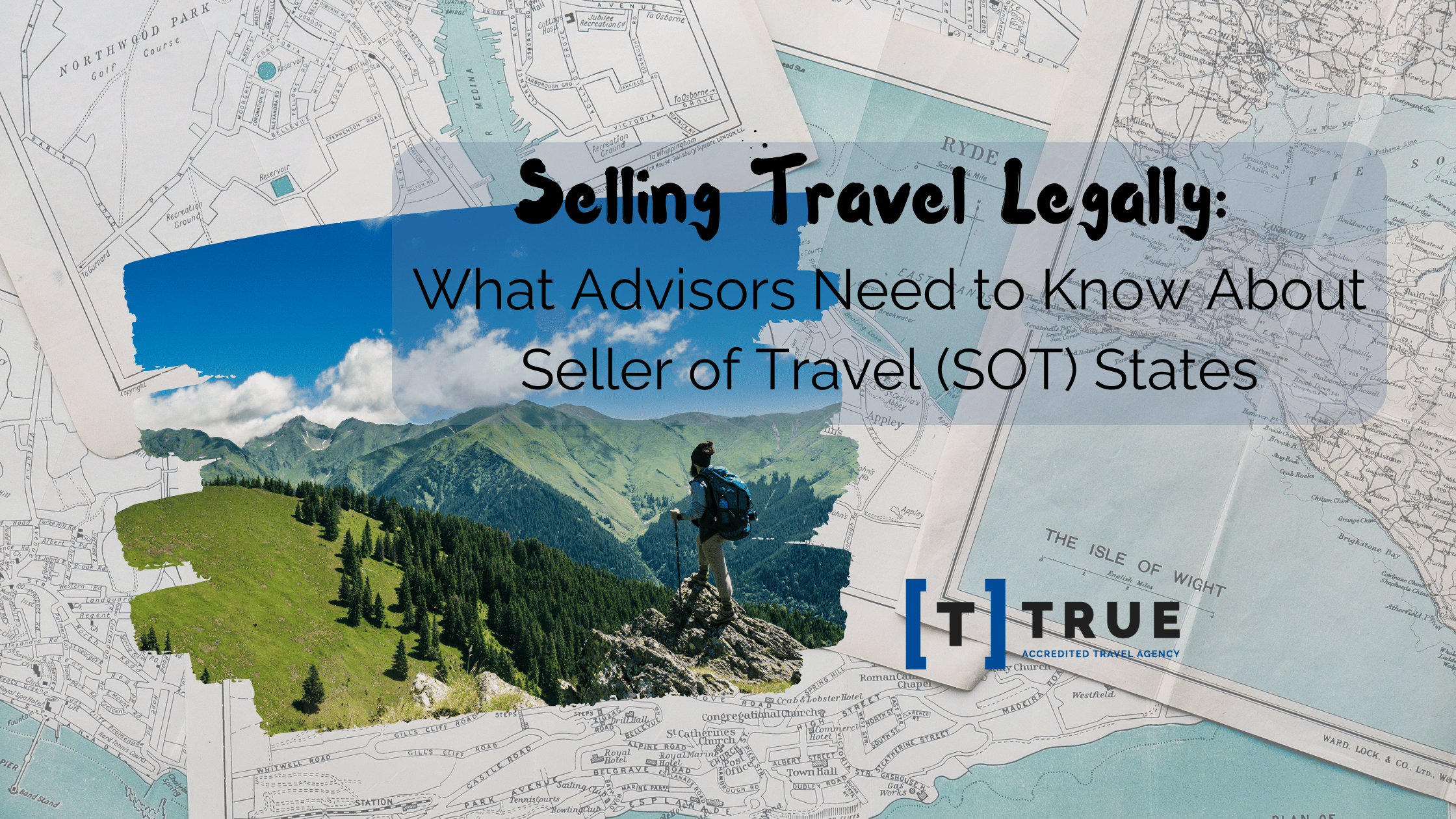If you’re a travel advisor operating in the U.S., you may already know that certain states have what’s called Seller of Travel or SOT laws. But too often, advisors either misunderstand or overlook these requirements—leaving their business at risk of fines, penalties, or even being shut down.
Understanding SOT regulations isn’t just about legal compliance. It’s about building trust with your clients, protecting your business, and ensuring you can confidently market and sell your services.
What Are Seller of Travel SOT Laws?
Seller of Travel laws are state-level consumer protection regulations designed to ensure transparency and accountability in the travel industry. They require travel advisors, agencies, and tour operators who sell travel services to register with the state and, in some cases, meet financial or bonding requirements.
These laws exist to protect consumers from fraud and to give them recourse if a travel company takes payment but fails to deliver. For advisors, compliance shows professionalism and builds client trust.
Which States Require SOT Registration?
Currently, the main states with Seller of Travel laws are:
California – Requires registration with the California Attorney General’s office, a registration fee, annual renewal, and in some cases, participation in the Travel Consumer Restitution Fund (TCRF).
🔗 California Seller of Travel Program
Florida – Requires registration with the Florida Department of Agriculture and Consumer Services, with options for exemptions if you’re an independent contractor working under a registered host.
🔗 Florida Seller of Travel Program
Hawaii – Requires registration with the Hawaii Department of Commerce and Consumer Affairs, plus proof of a client trust account.
🔗 Hawaii Seller of Travel Program
Washington – Requires registration with the Washington State Department of Licensing, along with financial responsibility disclosures.
🔗 Washington Seller of Travel Program
Advisors selling travel to residents of these states must be compliant—even if you’re not physically located there. If your client lives in California, for example, you must follow California’s SOT laws.
Why Does This Matter to Advisors?
Ignoring SOT requirements isn’t worth the risk. Here’s why:
- Financial Protection – Noncompliance can lead to costly fines, penalties, and in some cases, criminal charges.
- Client Trust – Being able to show you are legally registered builds confidence with travelers who may be comparing you to competitors.
- Supplier Relationships – Many suppliers and host agencies prefer or require advisors to be compliant before working together.
- Long-Term Growth – Operating legally gives you the foundation to expand your business without worrying about regulatory issues down the road.
How to Stay Compliant
- Know the Rules – Review the requirements for each SOT state (links above).
- Register Early – Don’t wait until you book a client in a covered state—apply in advance.
- Keep Records – Maintain clear records of payments, supplier confirmations, and client communications.
- Renew on Time – Most states require annual renewals with updated documentation.
Seller of Travel laws aren’t just red tape—they’re consumer protection measures that strengthen the travel industry as a whole. For advisors, compliance is a way to show professionalism, build client trust, and protect your business from unnecessary risk.
If you sell to clients in California, Florida, Hawaii, or Washington, make sure you’re following the rules. The effort you put in now can save you thousands later—and it reinforces your reputation as a trusted, credible travel advisor.

